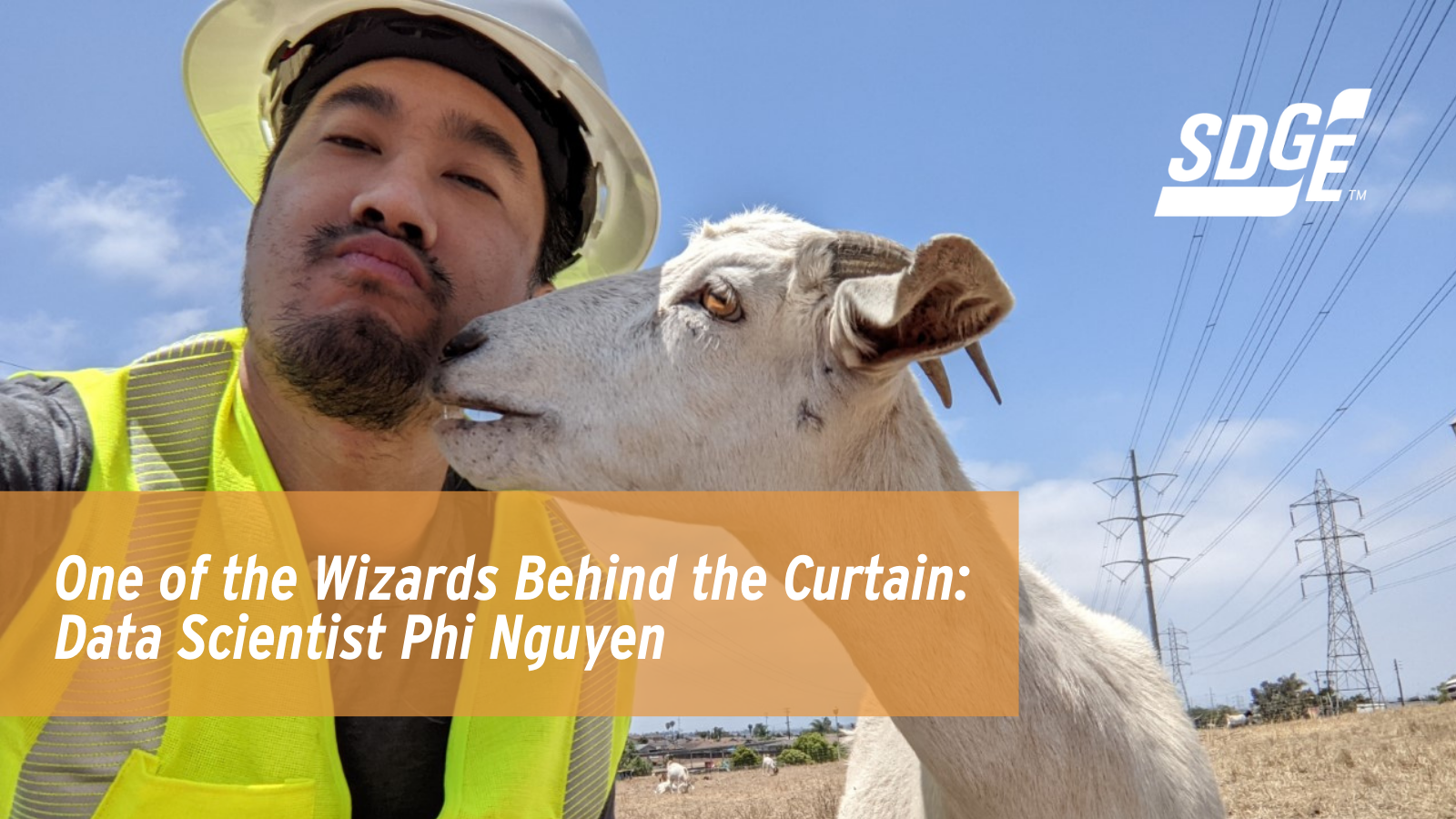To Phi Nguyen, data sets are treasure troves because they can yield valuable insights to make our operations safer, cleaner, and more reliable for the 3.7 million residents in our service area.
One of a handful of full-time data scientists on our team, Phi works in the risk management and compliance group and collaborates with business units across the company to conduct data analysis to help solve the most vexing problems. One of his recent projects was improving the accuracy of wildfire prediction, which included converting geospatial maps into quantitative features for use in our machine learning models.
Phi earned a Ph.D. in materials science and engineering from UC San Diego and joined our company in 2021. He is an active member of our Analytics Community of Excellence (ACE) whose mission is to elevate analytics as a means to drive innovation and optimize company performance. We recently sat down with Phi to learn more about his work, what it means to be a data scientist, and his journey from an unmotivated student to a career in science.
1. Some people may be surprised to hear that we hire data scientists. What do you do as a data scientist here?
I am glad that people are beginning to hear because data science is so critical for companies looking to be more proactive in making decisions informed by data. As a data scientist, I take our internal data and apply statistical methods to build models that make predictions on some specified outcome. This requires a combination of software coding, statistics, and domain knowledge. Without any coding skills, you won't be able to effectively apply the latest modeling algorithms. Without math and statistics, you will lack the ability to assess the predictive capabilities of your model. And without sufficient knowledge of the domain and business, your model may end up being meaningless or unused. Of the three, most data science projects fail due to deficiencies in the last area. Therefore, a huge part of my job is in understanding the business and regulatory needs around enterprise risk and wildfire safety.
2. Was there something or someone who inspired you to pursue a career in data science?
My background is in experimental materials science, where I would spend months in a basement lab to acquire just enough data to do some analysis. I found out after graduating that companies would pay more for me to skip the basement lab and go straight to the analysis. From there, you really have to keep on learning because the field is growing so fast, and I really liked the continuous learning aspect of data science. I do occasionally miss the lab experiments, but this has since manifested in home DIY projects.
3. You are a leader in ACE. Tell me why you decided to take part in this group?
At the surface level, I really just enjoy talking about data science and analytics with fellow nerds! At a deeper level, we've learned that the success of data science projects depends greatly on the analytical maturity of the company, and building a strong culture around data is key in our company's maturation journey.
4. One of the biggest risks utilities in California face is wildfires. Tell me how you are applying data science through geospatial buffer analysis to help improve wildfire safety in our region.
When it comes to wildfire safety, we can make better decisions if we are smarter about when and where wildfire risk is likely to be high. With data science, we have built models that predict risk based on our historical outage and ignition records. Part of the "art" of data science is in how we supplement these internal datasets with external data sources, such as satellite imagery or geospatial maps, in order to improve the accuracy and granularity of the models.
5. What is one thing that people would be surprised to find out about you?
I barely graduated from high school! People think because I have a Ph.D. that I was always studious, but I was very unmotivated, never did my homework, and skipped a lot of class. I turned things around when I started to feel that I wanted to make a difference in the world. I hope people take away from my story that anyone among us can do really cool things with the right motivation.


